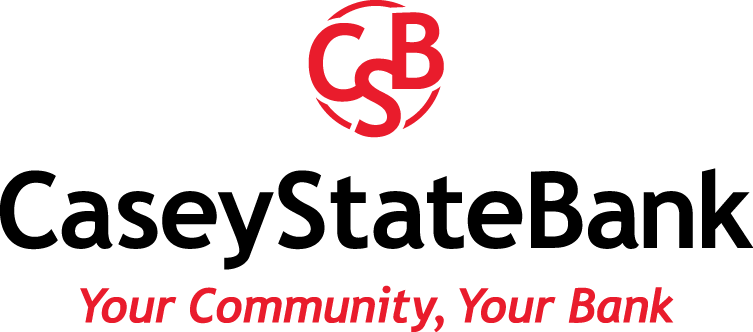female working on laptop and using her debit card
Casey State Bank
Blog
How to Avoid Debit Card Fraud
Debit card fraud is so common that, according to Self.inc, it accounts for 41% of the cases of identity theft in the US. The average loss to victims was $780 – an amount many people can’t afford to lose. Most people don’t even know what to watch out for to avoid debit card fraud, and it only seems to be getting worse. According to a Payments Journal post, 17% of consumers reported debit card fraud in 2018, but by 2020, the number was up to 25%. Most consumers don’t know that banks can only go so far to help them recover the loss of their hard-earned money through debit card fraud, so it’s especially important to do all you can to prevent it from happening in the first place.
Debit card fraud comes in many forms, such as:
- Lost or stolen cards
- Compromised debit card information
- Unauthorized debit transactions
- Card-present fraud
- Card-not-present fraud
- Unauthorized duplicates
- Recurring transactions
- Non-receipt of goods or services
Below are some ways to avoid credit card fraud, along with information that may be helpful to you.
Pay Attention to Bank Statements
One of the first steps to avoiding credit card fraud involves being aware of bank statements. It doesn’t take long to do a quick review of transactions, and it can save you quite a bit of money if you get hit by debit card fraud. The amount refunded to your account depends directly on how quickly you report the issue and what kind of issue it is (more on that below), so be sure to report any odd transactions immediately.
Guard your PIN and Debit Card
You’ve heard it often enough, but we’ll say it again: don’t share your PIN or card with anyone. Often we encounter fraud due to the customer sharing their card with a son, daughter, spouse or friend who then uses it to initiate unauthorized transactions. Additionally, don’t write it down anywhere, and consider not using it at the gas pump. Instead, use your debit card as if it’s a credit card, to avoid providing your PIN. In fact, using your debit card in credit card mode may offer extra liability protection for you.
Rethink Online Debit Card Use
Consider only using credit cards online, since they take more time for banks to process and can become an item of dispute rather than an instant transaction from your checking account. Check for a security symbol (an unbroken key or padlock symbol) on each website before you order, since these mean that your information will be encrypted and these websites will be safer. Another tip is to only make financial transactions on sites that have an “s” after “http” (Ie: https://) in the web address, or url. The added “s” is an indication of greater security.
Steer Clear of “Free Trials”
Often, businesses will offer free trials to customers and then, after the trial period, begin charging for the product or service. If you accept a “free trial” and then immediately have to provide credit card information, be leery of implications that can arise further down the road. Read all of the fine print – likely there is some point in the future where they plan to begin charging you. If it’s something you really want to try but don’t think you’ll want long-term, consider setting a reminder for yourself at the end of the trial period (in the form of a Google Calendar reminder or something of the like) to ensure you don’t exceed the trial period.
Only Use Bank ATMs
Ever heard of skimmers? They’re small devices that identity thieves add to ATMs in stores, gas pumps, and airports to intercept and store credit card data. To be honest, they are sometimes added to bank ATMs as well, although it is much more difficult for thieves to do this in banks because of the widespread use of surveillance cameras. Skimmers are very difficult to tell from regular ATM devices, but with discretion, some of them can be identified. For more on how to identify skimmers, check out this article.
Don’t Use Public Wifi for Financial Transactions
Whenever you are using wifi to check your account balance, pay bills, or shop, use a password-protected wifi signal. Doing this makes it more difficult for hackers to capture your password and account information.
Report Issues Right Away
Something you may not know about debit card fraud is that banks have a deadline as far as recovering your money. According to Regulation E, consumers must report lost or stolen cards no more than two days after they have become aware of the theft, or the consumer may not get as much of a refund. Time is of the essence, not only for you, but for the bank to be able to minimize losses as well. For those who wait over 60 days to report, the consequences are even more severe. There are different rules depending upon whether the card was lost/stolen and whether skimmers or other information-capturing techniques were used. You may consider reporting the problem to the police as well, to provide extra support when you want to be reimbursed for charges.
There you go – seven ways to avoid debit card fraud! We hope you’ve found this blog post informative and helpful. As always, we strive to provide value to you, our loyal customers. The security and privacy of your information is important to us. Providing these tips is just another way for us to make good on our promises to you.


